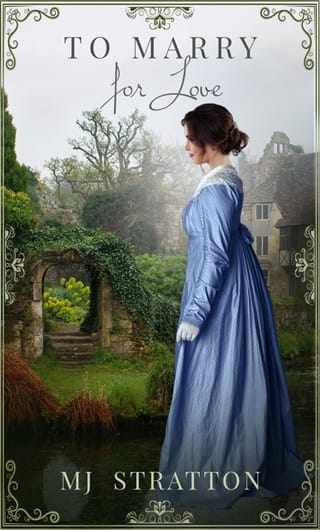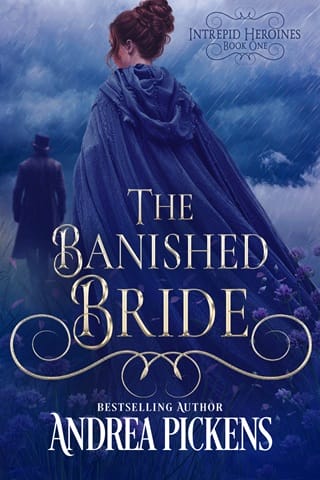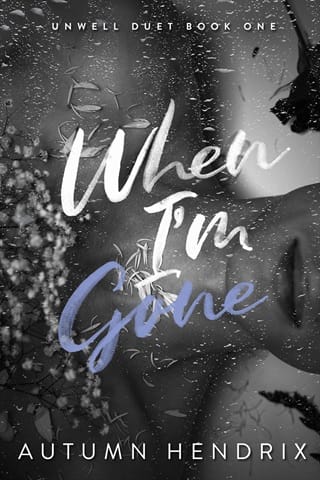Epilogue
Jane and Mr. Bingley married on January twenty-first, just as they had planned. Bingley purchased a common license, and they married with only family present. Miss Bingley and the Hursts were thankfully absent from the ceremony. They would have been dismayed to learn that no one regretted the loss of their company.
Mrs. Bennet expressed her feelings loudly upon learning that her eldest daughter was to marry again. “You shall move to Netherfield Park, and I shall once again be mistress of Longbourn!” she crowed in delight. This exclamation concerned Jane, who had fought very hard to have her proper position in the household, and she voiced her sentiments to her betrothed.
Together, they formulated a plan. The lease on Netherfield would continue until the autumn of 1813. There was an option to purchase the estate, and so Charles wrote to his solicitor to begin the arrangements. Upon completion of the purchase, the Bingleys would lease Netherfield Park as the previous owners had done and would reside at Longbourn.
“Longbourn already has an heir,” he reasoned. “Though Henry will be called my son, should we have another boy, he will need an estate, too.”
Mrs. Bennet was not pleased when they presented her with their plans, and she lamented loudly at the injustice. “If you are to reside here, then I should be mistress of Netherfield,” she reasoned. “It is only fitting. The finer estate ought to go to me as your mother.”
They quickly disabused her of the notion, telling her that she could lease a small cottage near Meryton if she was so displeased with her situation. Mrs. Bennet ceased her overt complaints after that, though she could be heard muttering under her breath now and then.
Mary, Kitty, and Lydia knew great joy at their sister’s felicity. With two sisters so well married, they knew that they would be granted many opportunities they would have never had. Georgiana, too, felt pleased with the turn of events, for she had come to care deeply for Mrs. Collins and her son and could only feel joy at their good fortune.
Charlotte and Sir Andrew also came to the ceremony, sneaking in just as it started and then sneaking out before the couple signed the register. Elizabeth saw them and smiled, pleased that all three ladies had found their happy endings, even if it was not in the way they had expected.
Darcy and Elizabeth remained in Hertfordshire as Elizabeth entered her confinement. On February tenth, she gave birth to a healthy baby boy. They named him Bennet Charles Darcy. He had a head full of dark hair and his mother’s cupid bow lips. She fell instantly in love with her son, lavishing all manner of affection on his little cheeks. Darcy, too, thought his son was the handsomest child he had ever seen, even when compared to his cousin Henry.
The Darcys returned to Pemberley for a short time after Elizabeth was churched, only to return in April for the rest of the season. Mrs. Darcy needed a new wardrobe, and they wished to take Georgiana shopping. She would be coming out next season, and there was much to be done to prepare for her launch in society.
Elizabeth was reunited with the dowager Lady de Bourgh upon their arrival in town. The matron exclaimed over the Darcy heir, praising his fine looks and happy disposition. “I see you have found your peace, Elizabeth,” she said crisply, punctuating her words with her walking stick. “I knew you would.”
“So you did, madam,” Elizabeth said, laughing.
“Am I the only one that did not know your sentiments upon our marriage?” her husband asked her later that evening as they discussed the call. “Was I so oblivious to your feelings?”
“I think you were lost in your own, my love,” she soothed. “I assure you, I would not have felt such antipathy toward you if I felt only disapprobation. As it is, I love you passionately now. We are so similar, so very well suited to each other. Our dispositions are complementary and our tastes very well aligned. What more could we ask?”
“As long as I am assured that your heart is mine alone, I shall be content,” he said huskily, nuzzling her neck.
Mary joined them in Derbyshire when they returned to Pemberley in June. She quickly caught the attention of the Kympton rector, and they married before Michaelmas. Bolstered by her position as Mrs. Darcy’s sister and the parson’s wife, Mary made great strides in gaining her confidence. From her, emerged a quiet assurance that she had value, and her husband’s love only aided her new strength.
Kitty and Lydia came out with Georgiana. The former two had little by the way of dowries, but their connections helped them both make respectable marriages. Kitty married the second son of an earl who had inherited a small estate in Devonshire from his mother. They lived there for much of the year, content with the small society they inhabited. The couple had three sons and a daughter and were very happy.
Lydia did not marry during her first season. She found her time in London to be more than she could stomach. Once she had loved to be admired by all those around her, but after a few gentlemen took her flirtatiousness as an invitation to accept her favors, she realized that her behavior, though more controlled than when she lived at Longbourn, left much to be desired. She returned home to stay with Jane and Bingley, where she met one of Bingley’s cousins. Mrs. Bingley, who still resided with Charles and Jane, had invited her eldest son, a profitable tradesman from Scarborough, to visit her and he was staying at Longbourn when Lydia returned.
Mr. Anthony Bingley fell instantly in love with his cousin’s vivacious sister-by-marriage, though she took more convincing. Having been raised by a mother who constantly insisted that her daughters ought to marry as well as they could, she initially dismissed him. The handsome tradesman patiently courted her attention until she could not help but fall in love with him. They married in the autumn and then returned to Scarborough, where she learned that despite his humble origins, Lydia’s husband was well respected in the area, and exceedingly rich. She soon found herself happily surrounded by new acquaintances that were eager to befriend her.
Georgiana Darcy married Viscount Winston Markham after her first season. They were well suited to each other, and his estate was only thirty miles from Pemberley, much to everyone’s delight. They had two children, a boy named Winston John, and a girl who they named for her mother, affectionately calling her Gina Louise. They were frequent visitors to Pemberley, spending enough time with her brother and his family that Darcy joked frequently that the estate must be their second home.
Charlotte gave birth to the future Baronet de Bourgh after a year of marriage. The dowager countess became a great-grandmother, and she held the child tenderly even as she grumbled that she never thought she would live to hold her grandson’s son. Charlotte and Andrew named the lad William de Bourgh. She had two more children in following years— a son, Arthur, and a daughter named Amelia, making her happiness complete. Her daughter proved to be just as riotous as her namesake, much to Charlotte’s delight and vexation.
Though Anne de Bourgh rallied for two years after she took control of her inheritance, a winter cold turned to pneumonia, and sadly, she passed away after a valiant battle against the infection. Charlotte and Andrew knew devastation at the loss of their cousin and friend, and they mourned her deeply. The estate was returned to the de Bourgh’s and Andrew taught his son, Arthur, everything he needed to know to be a good master of his future inheritance.
Lady Catherine’s bitterness continued, and she bombarded her relations with abuse in her letters. Those missives drove her family further away, and they went unanswered. Eventually, she withdrew into herself after her daughter died, and a few years after, she died in her room at the dower house with only her maid as company.
Jane had another son within a year of her marriage to Charles Bingley. They named him Charles for his father, and she marveled at the sense of completeness this new addition brought to her heart. In the following years of their marriage, they had three more children: Catherine Elizabeth, Margaret Anne, and George Arthur. Though her happy ending had been delayed slightly, she never regretted the detour her life had taken, for without it, she would not have her son Henry.
Mrs. Bennet continued to vex her daughters. Her abuse to Elizabeth never ceased, and she began to send letters occasionally, demanding this or that from her second child. Elizabeth took to burning the letters unopened and unread, sad that her mother seemed to place the blame for her unhappy state completely on her second daughter’s shoulders. Mrs. Bennet stayed at Longbourn for three years until she passed away in her sleep. The family mourned quietly and went on with their lives, hoping that the Bennet matron had found peace from her nerves at last.
Darcy and Elizabeth welcomed a little girl two years after Bennet joined their family. The babe came into the world wailing loudly, her fists clenched tightly in protest at the new place she now found herself in. She, too, had dark hair with just a hint of curl presenting itself in her locks. They named her Anne Elizabeth.
Two years later, Richard George Darcy made his appearance. The Darcys welcomed their new son, pleased with the addition to their little family.
As their children grew, the Darcys spent only a little time in town. They both preferred the country, and they often invited their loved ones to Pemberley during the summer months. Her sisters, along with Charlotte and Sir Andrew, would come in July and stay until the end of September. The children grew up together, and they were the best of friends. The connections between the adults strengthened, and they leaned on each other during life’s trials.
Elizabeth often reflected on her journey to happiness, and as her children grew, she regaled them with the story of how prudence, practicality, and pragmatism had led to her marriage, aiding her in overcoming pride and prejudice to find a passionate and enduring love. To marry for love, she often mused. Happy thought, indeed.
I hope you enjoyed To Marry for Love.
 Fullepub
Fullepub 



